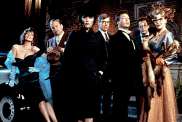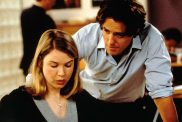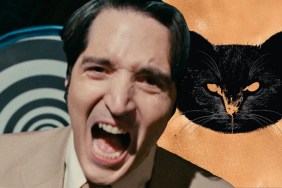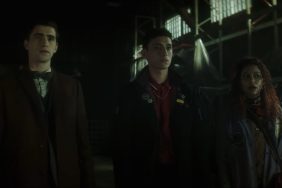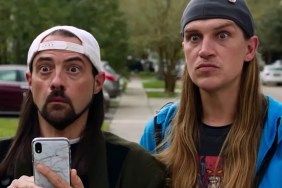
The most wonderful thing about The King’s Speech has little to do with the hardships at hand, the threat of World War II or the speech impediment of King George VI. Of course, these are the important factors that allow the film to move from Point A to Point B, but it’s the friendship that forms between King George and his speech therapist, Lionel Logue that absolutely moves you. Add this aspect of the story to the trials King George must face and you have one of the better movies of the year and two performances that must not be missed.
Opening in 1925, we are first introduced to the soon-to-be King George VI (Colin Firth). At that time he was Albert Frederick Arthur George, the Duke of York or Bertie — whichever you prefer — and we watch as he steps to the microphone at the British Empire Exhibition at Wembley. Appearing nervous, he begins his speech, but his dreadful stammering soon turns it into an embarrassment. With the growing use of radio and filmed speeches and a life filled with speaking engagements ahead of him, George seeks help at the hands of Lionel (played brilliantly by Geoffrey Rush), a rather unique, Australian speech therapist.
Matters for George become more pressing as his father, George V (Michael Gambon), passes away and his older brother, Prince Edward VII (Guy Pearce) abdicates the throne shortly thereafter in order to marry the twice-divorced woman he loves. Suddenly crowned King George VI, he must overcome his affliction and soon deliver a speech that will unite his nation as they declare war against Germany.
Fresh off last year’s stellar performance in A Single Man, Firth’s performance here as King George VI is extremely moving. The consternation, frustration and determination seen in his eyes as he tries to find his voice are palpable. Compare that to the compassionate and patient approach Rush applies to Lionel in helping him and the story can’t help but emotionally escalate.
Once the film makes its way to its midpoint, a first time visit from George and his wife Elizabeth (Helena Bonham Carter) to the Logue household results in a private sit-down between George and Lionel where the friendship between the two is cemented without hardly a word. It isn’t until this moment director Tom Hooper puts the two characters in such intimate proximity, and the effect of the decision is felt immediately.
In that respect, The King’s Speech is just as beautifully shot as it is acted and directed. The cinematography by Danny Cohen is quite impressive, particularly a morning stroll following George and Lionel as the sun battles against a low cloud cover. As the film moves forward the shots also become increasingly intimate to the point only faces sometimes fill the screen allowing the weight of every word to be felt.
Supporting performances by Timothy Spall as a frequently scowling, yet considerate Winston Churchill, Derek Jacobi as the Archbishop of Canterbury and Guy Pearce as George’s brother Edward are all expertly acted. It’s equally nice to see Helena Bonham Carter in a role outside of a Tim Burton or Harry Potter film, proving for the first time in a while there’s more talent to her than always playing an eccentric villain.
I expect The King’s Speech will be heavily nominated at this year’s Oscars as both Firth and Rush seem prime candidates for acting nominations. Hooper’s role as director and David Seidler’s original screenplay will also be in the mix as well as the film itself for Best Picture. This is a film that gets better and better as it plays on and will surely be remembered at year’s end.

